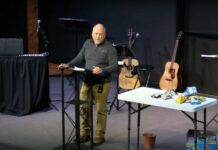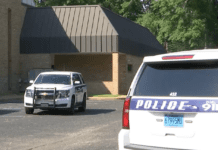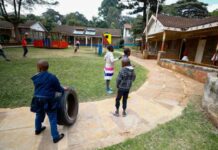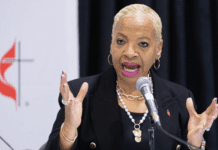For a month, Kennedy complied, the district notes in arguments to the court: He prayed on his own, such as while students were singing the fight song, and the district let him be.
But Kennedy’s lawyers then insisted he be allowed to resume his prior practice, describing it as a “personal” prayer protected by the Constitution whether or not students joined him. Kennedy announced he would resume praying at midfield after games, and when he did so at the Oct. 16, 2015, homecoming game, as Bremerton’s players were otherwise occupied, spectators rushed to field to join him — as did members of the opposing team.
The district still did not fire Kennedy, but wrote to caution him. Given his prior statements and actions, his praying at midfield — on government property he could access only by virtue of his job — could be perceived as school endorsement of religion, exposing the district to potential liability, Superintendent Aaron Leavell wrote.
“I wish to again emphasize that the district does not prohibit prayer or other religious exercise by its employees,” Leavell wrote. “However, it must prohibit any conduct by its employees that would serve as District endorsement of religion.”
Kennedy prayed again on the field after the next two games: first at a varsity game where no one joined him, and then at a junior varsity game where he was joined by a state lawmaker. The district then placed him on leave, and his contract was not renewed.
Kennedy’s lawyers point out that he stopped engaging in religious activity with Bremerton students when asked. What he was actually suspended for was not delivering prayers to students, but kneeling and praying quickly by himself, they argue.
The federal judge who ruled against Kennedy, District Judge Ronald Leighton, compared his postgame behavior to a director who comes to center stage and prays at the end of a school play: “A reasonable onlooker would interpret their speech from that location as an extension of the school-sanctioned speech just before it.”
As the case made its way through the courts, Kennedy lost at every turn. But when the Supreme Court declined to take the case at an earlier stage, Justices Samuel Alito, Clarence Thomas, Neil Gorsuch and Brett Kavanaugh called the 9th Circuit’s reasoning “troubling” and said under it, “public school teachers and coaches may be fired if they engage in any expression that the school does not like while they are on duty.”
RELATED: Let This Basketball Coach Teach You How to Pray a Blessing
Ninth Circuit Judge Milan Smith suggested a teacher who prays over lunch in a cafeteria doesn’t send a public message the way Kennedy did. Smith called the narrative posed by Kennedy’s lawyers — that this was about a public employee’s private prayer — “deceitful.”
Kennedy said he just wants to get back to coaching.
“This thing has just been so blown out of proportion,” he said. “Imagine a guy going out there and tying his shoe — you would never know the difference.”
This article originally appeared here.











